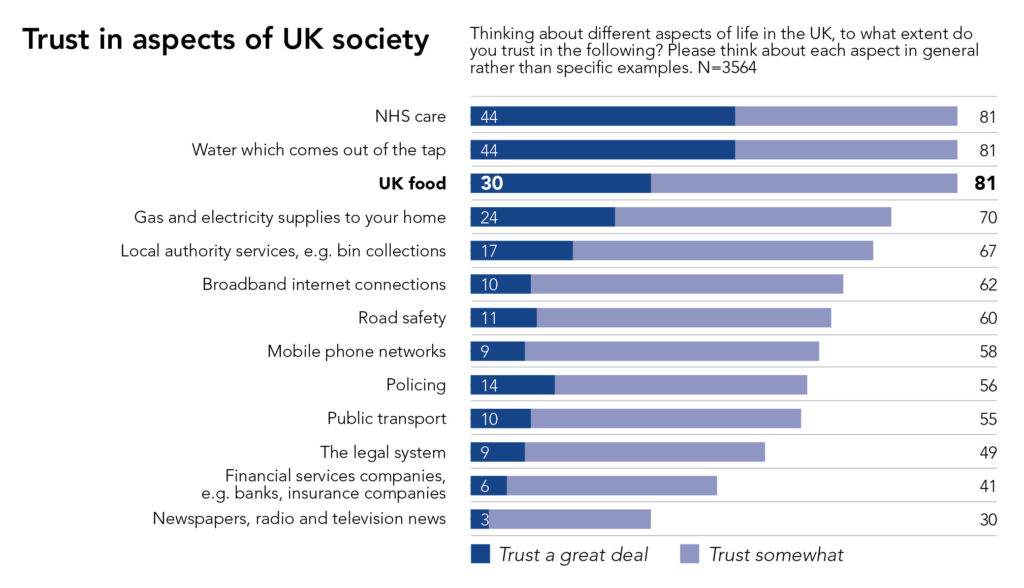
This represents a huge vote of confidence in the state of the nation’s food, with food trusted more highly than other daily essentials, like gas and electricity, modern communications networks, or government services provided by local authorities (such as bin collections.)
When looking at the proportion of the public who trust UK food ‘a great deal’, it is clear that trust in UK food still has some room for improvement.
Recognition is similar across different demographic groups, with older people about 10 points more likely to recognise Fairtrade compared to younger people, and 15 points more likely to recognise Red Tractor.

There is also a notable age gap: while 84% of those aged 65 and over think food is traceable, only 67% of those aged 18–39 agree.
Arguably, this is a result of older generations having lived through significant food crises such as BSE (otherwise known as Mad Cow Disease), Foot and Mouth disease, and the horse meat scandal, and have been reassured by the subsequent measures put in place by the food industry.
Younger people who did not live through such moments seem to place far greater emphasis on the authenticity of a food product – in other words, whether the way it is labelled truly reflects what is being sold.